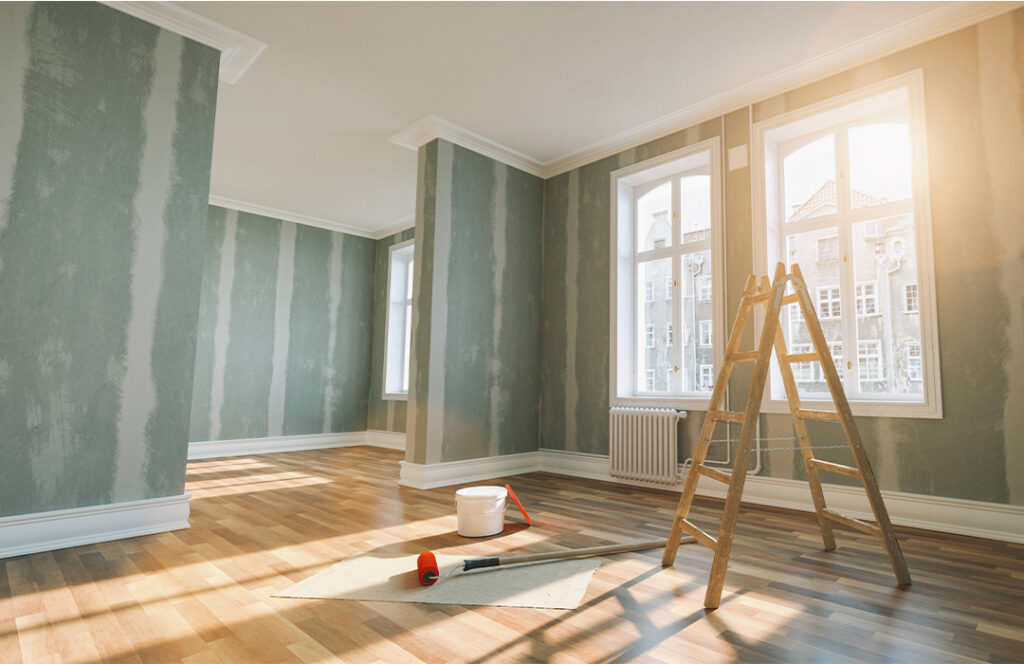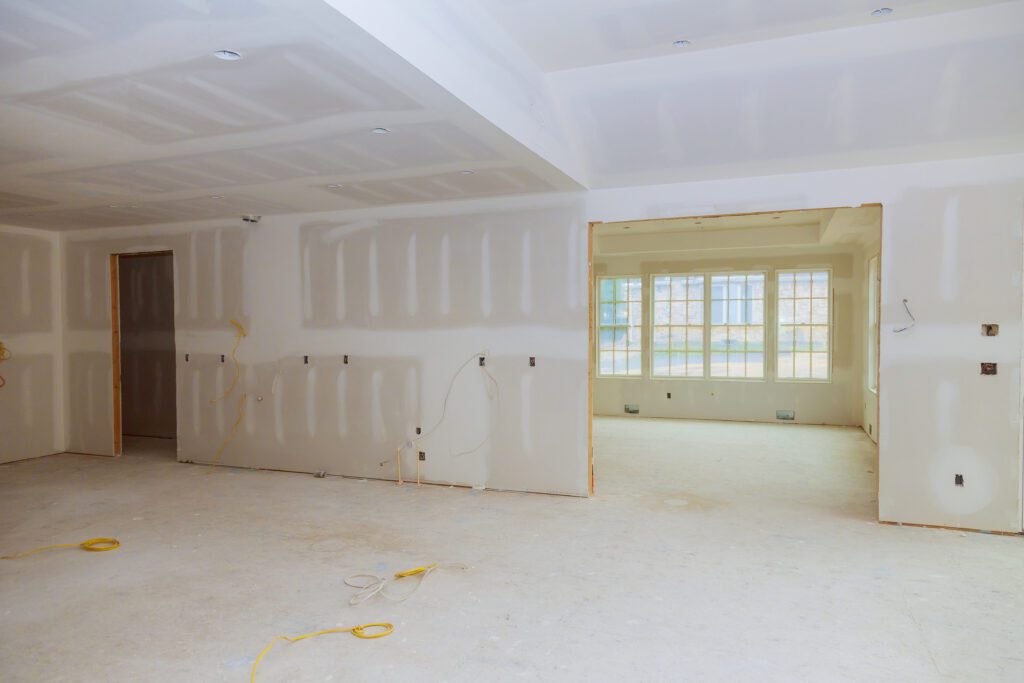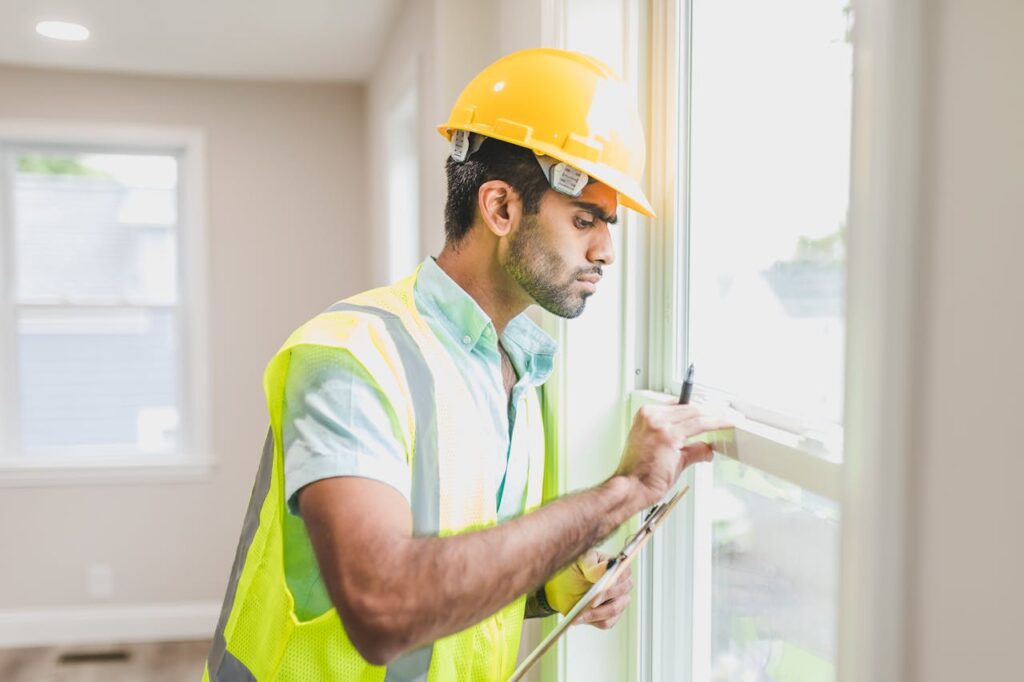When considering a home transformation, the decision between a whole house renovation or new construction can be daunting. Each option comes with its own set of benefits and challenges. Understanding the historical context of your property can play a crucial role in making this choice. Factors such as the age of the existing structure, architectural significance, and personal preferences all influence whether renovation or new build is the right path forward. By weighing the pros and cons of each approach, you can determine which aligns best with your vision and budget for your dream home.
Understanding Renovation and New Construction
Differences
Renovating a home involves updating an existing structure, while new construction entails building from scratch. The former retains some elements, whereas the latter allows for complete customization.
Renovation projects span from simple upgrades like painting to extensive overhauls involving structural changes. In contrast, new construction offers a blank canvas for tailored designs and layouts.
Scope
Renovations vary in scale, ranging from minor cosmetic changes to complex structural modifications. They can include updating finishes, replacing fixtures, or even reconfiguring the entire layout.
New construction presents the opportunity to create a customized living space that meets specific needs and preferences. It allows for incorporating modern technologies, energy-efficient features, and the latest design trends.
Cost-Effectiveness
Demolishing and rebuilding can sometimes be more cost-effective than extensive renovations due to factors like structural issues, outdated systems, or inefficient layouts. It offers the chance to start fresh without constraints.
Extensive renovations may incur higher costs depending on the scope of work required. Factors such as material prices, labor expenses, and unforeseen challenges during renovations can impact the overall budget.
Cost Analysis of Each Option
Hidden Costs in Renovation
Renovating a house may seem more cost-effective at first glance, but hidden issues can quickly escalate expenses. Structural problems, outdated wiring, or plumbing issues are common surprises during renovations. These unforeseen challenges can significantly impact the overall cost.
Renovation projects often involve working with existing structures, leading to unpredictable expenses. For instance, discovering mold behind walls or a weak foundation can inflate the budget. Homeowners should be prepared for unexpected costs that may arise during the renovation process.
Budgeting for Contingencies
When planning a renovation project, it is crucial to set aside a portion of the budget for contingencies. Contingency funds help cover unforeseen expenses that may arise during the renovation. Typically, allocating around 10-20% of the total budget for contingencies is advisable to handle any surprises without derailing the project.
In renovation projects, design changes or structural modifications can lead to additional costs. Altering the initial plans or upgrading materials can strain the budget. Therefore, having a well-planned budget with room for adjustments is essential to avoid financial stress during the renovation process.
Time Considerations for Each Approach
Project Timelines
When considering new construction, it’s crucial to understand the typical timeline involved. A new build project can take anywhere from 10 months to 2 years to complete, depending on the size and complexity of the home. The process involves various stages, including design, permitting, site preparation, construction, and finishing touches.
On the other hand, whole house renovation projects generally have a shorter timeline compared to new construction. The duration can range from 3 to 12 months, depending on the scope of work. Renovations involve tasks like demolition, structural modifications, installations, and interior finishes.
Factors Influencing Duration
Weather conditions play a significant role in both new construction and renovation projects. Extreme weather can halt progress on a new build or renovation, leading to delays in the overall timeline. For instance, heavy rain can impede outdoor work like foundation pouring or roofing.
Permitting processes are another factor that can impact project timelines. Obtaining necessary permits from local authorities is essential for both new construction and renovations. Delays in permit approvals can prolong the project schedule significantly.
Unforeseen Structural Issues
One common challenge in whole house renovations is the discovery of unforeseen structural problems. When renovating an older home, contractors may encounter issues like outdated wiring, plumbing problems, or hidden damage. Addressing these issues can lead to unexpected delays in the renovation timeline.
Pros:
- Renovations allow homeowners to preserve the character and history of an existing property.
- Renovations are often more cost-effective than new construction projects.
Cons:
- Renovations can be prone to delays due to unforeseen issues.
- Limited flexibility in changing the layout compared to new construction.
Design Flexibility and Limitations
Scope
When opting for new construction, homeowners have a vast scope to unleash their creativity. They can customize every aspect of the house, from layout to finishes, to perfectly suit their preferences. This allows for a truly personalized living space tailored to their needs.
Plan
In contrast, renovating a whole house presents limitations in terms of altering the existing structure. Homeowners may face challenges when trying to modify certain aspects of the house due to its original design. However, with careful planning and the right professionals, it is possible to achieve significant transformations.
Hidden Surprises
During a new construction, unexpected surprises can arise due to factors like soil conditions or unforeseen expenses. It’s crucial for homeowners to have a contingency plan in place to address any additional costs that may come up during the building process.
Structure
When renovating an existing house, maintaining the structure while making desired changes is essential. Homeowners must work closely with architects and contractors to ensure that any modifications do not compromise the integrity of the building. This requires a delicate balance between modern updates and preserving the original framework.
Historic Charm
Preserving the historic charm of a house during renovations can be a challenging yet rewarding endeavor. Homeowners who value the character of older homes can work with architects specializing in historic preservation to incorporate modern amenities while retaining unique features that make the property special.
Location
The location of the property plays a significant role in deciding between whole house renovation and new construction. In areas with limited available land or strict zoning regulations, renovating an existing house may be more feasible than starting from scratch. Conversely, in rapidly developing neighborhoods, new construction could offer more value and customization options.
Pros and Cons of Renovation
Staying Put
Opting for a renovation allows you to stay in your familiar neighborhood, maintaining your community ties and daily routines. It eliminates the need to uproot your life during the construction process.
Living in the house during renovations can be challenging but offers the advantage of overseeing the project firsthand. You can ensure that the work is progressing as planned and make immediate decisions when needed.
Unexpected Costs and Complications
Renovations often come with unforeseen expenses and complications. Issues like hidden structural damage or outdated wiring can lead to additional costs that were not part of the initial budget.
To mitigate these risks, it’s crucial to have a contingency fund set aside specifically for unexpected renovation costs. This buffer can help cover any surprises that may arise during the renovation process.
Preserving Architectural Features
One of the significant advantages of renovating an older home is the opportunity to preserve its unique architectural features. From intricate moldings to original hardwood floors, good renovation work can enhance these elements, adding character and charm to your living space.
When planning a home renovation, consider how you can incorporate and highlight these distinctive features rather than replacing them. This approach not only maintains the home’s historical value but also creates a blend of old-world charm with modern convenience.
Pros and Cons of New Construction
Advantages of Modern Building Codes
New construction offers the advantage of adhering to modern building codes, ensuring that the home is constructed with the latest safety standards in mind. This results in a structurally sound property that meets all the necessary regulations, providing peace of mind for homeowners. Modern building codes often emphasize energy efficiency, leading to lower utility bills and a reduced environmental impact over time.
Lack of Existing Structural Issues
One significant benefit of opting for new construction is the absence of existing structural issues that can commonly arise in older homes or renovation projects. By starting from scratch, homeowners can avoid unexpected problems such as faulty wiring, plumbing issues, or foundation concerns. This translates to a smoother building process and fewer costly surprises down the line.
Potential for Customization in Layout and Design
When choosing new construction, homeowners have the unique opportunity to customize both the layout and design of their home right from the beginning. From selecting floor plans to choosing finishes and fixtures, individuals can tailor every aspect of their new home to suit their preferences and lifestyle. This level of customization ensures that the final product aligns perfectly with the homeowner’s vision.
Impact on Home Value
Renovations Enhancing Property Value
Renovations play a crucial role in enhancing the value of your dream home, particularly in sought-after locations. By updating key features such as kitchens, bathrooms, and outdoor spaces, you can significantly boost the overall value of your property. Focusing on energy-efficient upgrades like insulation, windows, and HVAC systems can attract eco-conscious buyers and increase the marketability of your home.
New Construction Resale Value
New construction homes typically offer a higher resale value compared to renovated properties due to their modern amenities and up-to-date design features. Buyers are often willing to pay a premium for a brand-new home that requires minimal maintenance and comes with warranties on appliances and structural components. The allure of moving into a pristine, never-lived-in house appeals to many potential buyers, translating into a higher resale value in the long run.
Market Trends Influence
Market trends play a significant role in determining the value of renovated versus newly built homes. In a seller’s market, where demand exceeds supply, renovated homes may command high prices due to the scarcity of available properties. Conversely, in a buyer’s market, where there is an abundance of new construction options, buyers may gravitate towards brand-new homes with modern conveniences, impacting the resale value of renovated properties.
Choosing the Right Option for You
Personal Evaluation
Before making a decision between whole house renovation and new construction, it is crucial to evaluate your lifestyle needs and future plans. Consider whether your current home’s layout and features align with your daily routines and if any changes are necessary to accommodate your evolving lifestyle. Assessing these aspects can guide you towards the option that best suits your needs.
It’s essential to weigh the emotional attachment you have to your current property against the excitement of starting fresh with a custom home. Reflect on the memories and experiences tied to your existing home and determine if renovating it would preserve its sentimental value or if building a new home would fulfill your long-held dreams. This emotional aspect can play a significant role in your decision-making process.
Professional Consultation
Consulting with real estate professionals can provide valuable insights into the market implications of both options. They can offer guidance on how each choice may impact the property’s value in the long run, helping you make an informed decision based on financial considerations. By seeking expert advice, you can gain a better understanding of the potential differences in returns between renovating and constructing a new home.
Market Analysis
Analyzing the current real estate market trends is essential when contemplating a major housing decision. Understanding how factors such as location, property size, and room layouts influence property values can help you determine which route—renovation or new construction—aligns better with your investment goals. By staying informed about market dynamics, you can make a choice that not only enhances your living space but also maximizes the charm and appeal of your property.
Final Remarks
Considering the cost, time, design options, and impact on your home’s value, you now have a clearer picture of the differences between whole house renovation and new construction. Both approaches have their pros and cons, but ultimately, the right choice depends on your specific needs and preferences. Whether you opt for the creativity of renovating your current space or the fresh start of building anew, make sure to weigh the factors that matter most to you. Your decision will not only affect your immediate living situation but also your long-term satisfaction and property value. So, take your time, assess your priorities, and choose wisely to create a home that truly reflects your vision and meets your requirements.
Transform Your Home with Red White & Blue Construction
Is your home in need of an update? Let’s make it happen! At Red White & Blue Construction, we specialize in whole house renovations that breathe new life into every corner of your home. Whether you’re in Lafayette, CA, or anywhere in the Bay Area, we’ll help you create a space that reflects your style, meets your needs, and increases your home’s value.
Looking to modernize your kitchen, refresh your bathrooms, or open up your living spaces? Maybe you want a complete makeover that blends functionality with beauty. We’ve got you covered! From design to construction, we handle every step with care, ensuring your renovation meets the highest standards for quality and compliance.
We’re proud to be known throughout the Bay Area for our top-notch craftsmanship, transparent pricing, and personalized service. Renovating your entire home can feel overwhelming, but with Red White & Blue Construction, the process is easy and stress-free. From flooring and cabinetry to electrical, plumbing, and more—we take care of every detail. Whether you want something bold and modern or cozy and traditional, we’ll bring your vision to life.
Don’t settle for a home that no longer fits your needs. Let’s transform it into the perfect space for you and your family. Contact Red White & Blue Construction today, and let’s make your dream home a reality!
Disclaimer
The materials available on this website are for informational and entertainment purposes only and not to provide advice. You should obtain advice concerning any particular issue or problem from a professional. You should not act or refrain from acting based on any content included in this site without seeking legal or other professional advice. The information presented on this website may not reflect the most current building developments. No action should be taken in reliance on the information on this website. We disclaim all liability concerning actions taken or not taken based on any or all of the contents of this site to the fullest extent permitted by law.





